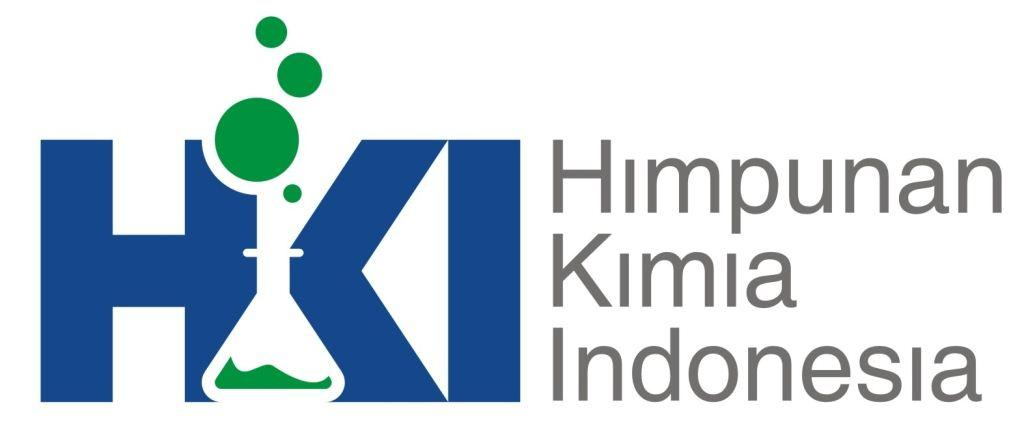Synthesis of Antibacterial Coating Film Based on Eugenol-Allyl Eugenol Copolymer with Chitosan-Gelatin
Abstract
Keywords
References
Finina BF, Mersha AK. Nano-enabled antimicrobial thin films: design and mechanism of action. RSC Advances. 2024;14(8):5290-5308. doi:10.1039/d3ra07884a
Gharbi A, Kenné JP, Kaddachi R. Dynamic optimal control and simulation for unreliable manufacturing systems under perishable product and shelflife variability. International Journal of Production Economics. 2022;247: 108417. doi: https://doi.org/10.1016/j.ijpe.2022.108417
Khubiev OM, Egorov AR, Kirichuk AA, Khrustalev VN, Tskhovrebov AG, Kritchenkov AS. Chitosan-Based Antibacterial Films for Biomedical and Food Applications. International Journal of Molecular Sciences. 2023;24(13). doi:10.3390/ijms241310738
Mohamed SAA, El-Sakhawy M, El-Sakhawy MAM. Polysaccharides, Protein and Lipid -Based Natural Edible Films in Food Packaging: A Review. Carbohydrate Polymer. 2020;238: 116178. doi:10.1016/j.carbpol.2020.116178
Priyadarshi R, Rhim JW. Chitosan-based biodegradable functional films for food packaging applications. Innovative Food Science and Emerging Technologies. 2020;62(March):102346. doi:10.1016/j.ifset.2020.102346
Du C, Li S, Fan Y, Lu Y, Sheng J, Song Y. Preparation of gelatin-chitosan bilayer film loaded citral nanoemulsion as pH and enzyme stimuli-responsive antibacterial material for food packaging. International Journal of Biological Macromolecules. 2024;254:127620. doi: https://doi.org/10.1016/j.ijbiomac.2023.127620
Petkova P, Francesko A, Fernandes MM, et al. Sonochemical Coating of Textiles with Hybrid ZnO/Chitosan Antimicrobial Nanoparticles. ACS Applied Materials & Interfaces Journal. 2014;6(2):1164-1172. doi:10.1021/am404852d
Wang H, Li B, Ding F, Ma T. Improvement of properties of smart ink via chitin nanofiber and application as freshness indicator. Progress in Organic Coatings. 2020;149: 105921. doi: https://doi.org/10.1016/j.porgcoat.2020.105921
Wang H, Ding F, Ma L, Zhang Y. Edible films from chitosan-gelatin: Physical properties and food packaging application. Food Biosci. 2021;40: 100871. doi: https://doi.org/10.1016/j.fbio.2020.100871
Hassan M, Hussain D, Kanwal T, Xiao HM, Ghulam Musharraf S. Methods for detection and quantification of gelatin from different sources. Food Chemistry. 2024;438: 137970. doi: https://doi.org/10.1016/j.foodchem.2023.137970
Bertolo MR V, Martins VCA, Horn MM, Brenelli LB, Plepis AMG. Rheological and antioxidant properties of chitosan/gelatin-based materials functionalized by pomegranate peel extract. Carbohydrate Polymer. 2020;228:115386. doi: https://doi.org/10.1016/j.carbpol.2019.115386
Haghighi H, De Leo R, Bedin E, Pfeifer F, Siesler HW, Pulvirenti A. Comparative analysis of blend and bilayer films based on chitosan and gelatin enriched with LAE (lauroyl arginate ethyl) with antimicrobial activity for food packaging applications. Food Packaging and Shelf Life. 2019;19: 31-39. Doi :https://doi.org/10.1016/j.fpsl.2018.11.015
Moeini A, Mallardo S, Cimmino A, et al. Thermoplastic starch and bioactive chitosan sub-microparticle biocomposites: Antifungal and chemico-physical properties of the films. Carbohydrate Polymer. 2020;230:115627. doi: https://doi.org/10.1016/j.carbpol.2019.115627
Nair MS, Saxena A, Kaur C. Effect of chitosan and alginatebased coatings enriched with pomegranate peel extract to extend the postharvest quality of guava (Psidium guajava L.). Food Chemistry. 2018;240: 245-252. doi: https://doi.org/10.1016/j.foodchem.2017.07.122
Perumal AB, Huang L, Nambiar RB, He Y, Li X, Sellamuthu PS. Application of essential oils in packaging films for the preservation of fruits and vegetables: A review. Food Chemistry. 2022;375: 131810. doi: https://doi.org/10.1016/j.foodchem.2021.131810
Navikaite-Snipaitiene V, Ivanauskas L, Jakstas V, et al. Development of antioxidant food packaging materials containing eugenol for extending display life of fresh beef. Meat Science. 2018;145: 9-15. doi: https://doi.org/10.1016/j.meatsci.2018.05.015
Getnet TG, Kayama ME, Rangel EC, Duarte ICS, da Silva GF, Cruz NC. Atmospheric pressure plasma deposition of eugenol-derived film on metallic biomaterial for suppression of Escherichia coli and Staphylococcus aureus bacterial biofilm. Thin Solid Films. 2021;734: 138833. doi: https://doi.org/10.1016/j.tsf.2021.138833
Lan Q, Zhang X, Liang J, et al. Multifunctional polyeugenol-based nanoparticles with antioxidant and antibacterial properties. Particuology. 2024;87: 194-204. doi: https://doi.org/10.1016/j.partic.2023.08.012
Ngadiwiyana, Gunawan, Prasetya NBA, Kusworo TD, Susanto H. Synthesis and characterization of sulfonated poly(eugenol-co-allyleugenol) membranes for proton exchange membrane fuel cells. Heliyon. 2022;8(12): e12401. doi:10.1016/j.heliyon.2022.e12401
Silvianti F, Siswanta D, Aprilita N, Kiswandono A. Adsorption characteristic of iron onto poly[eugenol-co-(divinyl benzene)] from aqueous solution. Jurnal Natural. 2017; 17:108. doi:10.24815/jn.v17i2.8076
Karydis-Messinis A, Moschovas D, Markou M, et al. Development, physicochemical characterization and in vitro evaluation of chitosan-fish gelatin-glycerol hydrogel membranes for wound treatment applications. Carbohydrate Polymer Technologies and Applications. 2023;6. doi:10.1016/j.carpta.2023.100338
Zárate-Triviño DG, Hernández-Martínez SP, Bollain-y-Goytia-de-la-Rosa JJ, et al. Development of a novel scaffold of Chitosan, type IV collagen and integrin α3β1 as alternative scaffold for primary culture of podocytes. Applied Sciences (Switzerland). 2018;8(6). doi:10.3390/app8060930
Bonilla J, Poloni T, Lourenço R V., Sobral PJA. Antioxidant potential of eugenol and ginger essential oils with gelatin/chitosan films. Food Bioscience. 2018;23:107-114. doi:10.1016/j.fbio.2018.03.007
Utomo SB, Fujiyanti M, Lestari WP, Mulyani S. Antibacterial Activity Test of the C-4-methoxyphenylcalix-[4]-resorcinarene Compound Modified by Hexadecyltrimethylammonium-Bromide against Staphylococcus aureus and Escherichia coli Bacteria. JKPK (Jurnal Kimia dan Pendidikan Kimia). 2018;3(3):201. doi:10.20961/jkpk.v3i3.22742
Kosasi C, Lolo WA, Sedewi S. Isolasi dan uji aktivitas antibakteri dari bakteri yang berasosiasi dengan alga Turbinaria ornata (Turner) J. Agardh serta identifikasi secara biokimia. Pharmacon. Vol 8.; 2019. doi: https://doi.org/10.35799/pha.8.2019.29301
Wasitaningrum I. Uji resistensi bakteri Staphylococcus aureus dan Escherichia coli dari isolat susu sapi segar terhadap beberapa antibiotik. Bachelor’s Thesis, Faculty of Pharmacy, Universitas Muhammadiyah Surakarta, 2009.
Riski R, Sami F. Formulasi krim anti jerawat dari nanopartikel kitosan cangkang udang windu (Penaeusmonodon). Jurnal Farmasi. Vol. 3 No. 4, 2015. doi: https://doi.org/10.24252/jfuinam.v3i4.2261
DOI: 10.15408/jkv.v10i2.40944
Refbacks
- There are currently no refbacks.
Copyright (c) 2024 Ngadiwiyana - Ngadiwiyana, Hana Putri Dzahabiyyah, Ismiyarto Ismiyarto, Purbowatiningrum Ria Sarjono

This work is licensed under a Creative Commons Attribution-ShareAlike 4.0 International License.


